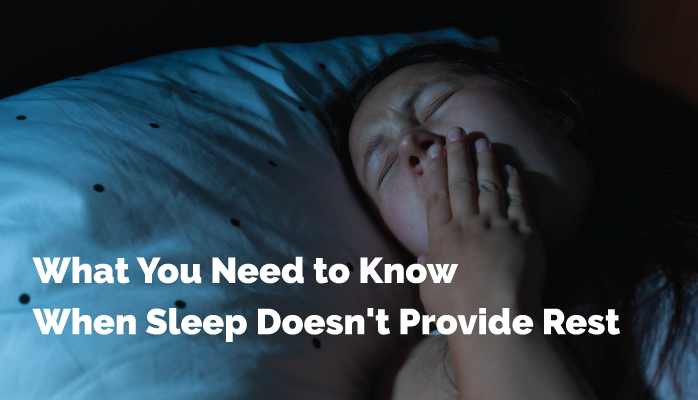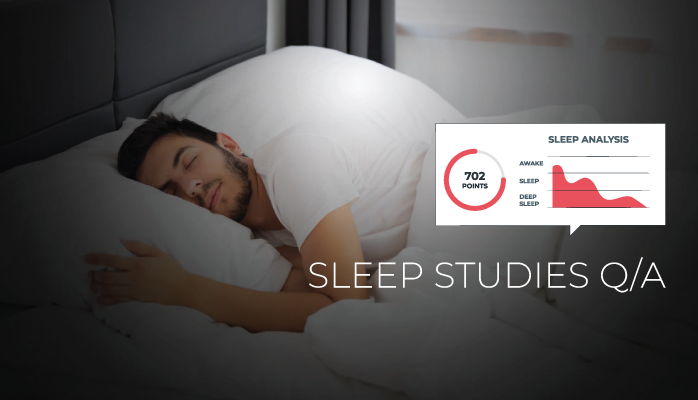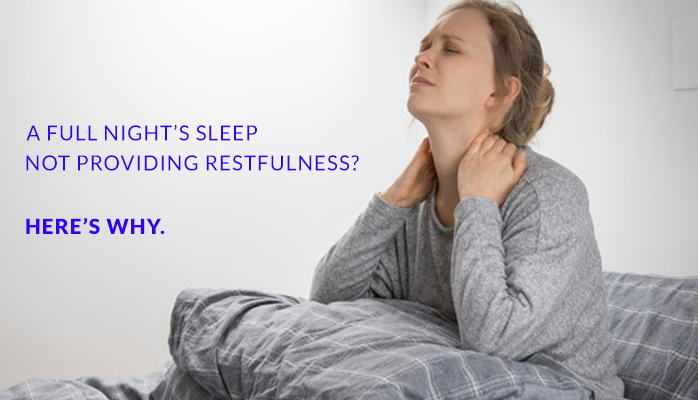Do you ever find yourself waking up exhausted? You feel like you slept through the night, yet you don't have that rejuvenated feeling and you know it's going to be a long day before your feet even hit the floor. The first thing you should know is that this isn't normal. After 8-10 hours of sleep, your body should have had time to repair tissues, digest food, and rest your brain for another day. If this isn't happening, and your body can't complete these tasks, then there may be something else going on preventing you from getting adequate sleep. Continue reading to learn more about common causes of waking up exhausted!
Tyler Britton
Recent Posts
Waking up Exhausted? What you Need to Know About Restless Sleep
Narcolepsy is a sleep disorder characterized by a frequent and uncontrollable desire for sleep. This can result in sudden sleep at any time and place, regardless of what's happening. This results in the distortion of normal sleep patterns and rhythms causing excessive daytime sleepiness and a dangerous amount of sleep deprivation.
Irregular sleeping patterns are not only inconvenient, they can have medical, emotional, and psychological consequences. Continue reading to learn more about Narcolepsy.
Narcolepsy is a sleep disorder characterized by a frequent, and sometimes uncontrollable, desire for sleep. This can result in sudden lapses into sleep at any time, in any place. The result is that normal patterns and rhythms of sleeping become abnormal. For example, someone suffering from narcolepsy may end up sleeping several times during the day and then having trouble sleeping at night. If you think you may have Narcolepsy, here are five signs that can help you determine if you need to see a sleep specialist or not.
What is Narcolepsy, and do I have it? Answers to common FAQs
Narcolepsy is a sleep disorder characterized by a frequent, and sometimes uncontrollable, desire for sleep. This can result in sudden bouts of deep sleep at any time and place, regardless of what is going on. This disrupts normal patterns and rhythms of sleeping. For example, a normal sleep pattern is the ability to sleep through the night with minimal awakenings, and then you may find yourself taking a nap during the day. However, someone suffering from narcolepsy may have trouble staying asleep during the night but find themselves falling asleep several times throughout the day, feeling refreshed after each nap, but soon feeling overwhelmingly sleepy again.
Irregular sleeping patterns are not only inconvenient. They can have medical, emotional, and psychological consequences. Falling asleep at the wrong time can create stress on your professional and social life, but also can be dangerous, for example, if one is driving.
Using a Sleep Diary - Tracking Your Sleep for Better Health
If you've ever had trouble sleeping, a sleep diary may be a great way for professionals to gain some insight into what may be the cause and how best to help you. Sleep is really important for your overall health, so if you’re struggling with your sleep, then you may begin to experience other health issues. Weight gain, stress exhaustion, depression, skin issues, etc., may be some of the consequences of inadequate sleep.
One of the things you can do if you are having trouble sleeping is to keep a sleep diary that you can take to a sleep specialist. This way you can get a better idea of your sleep patterns, and they have an idea as well. Let's talk more about what a sleep diary is and how it can help you and your sleep issues.
What do Sleep Studies Monitor?
Sleep studies are important diagnostic tools for common sleep disorders like sleep apnea, insomnia, and circadian rhythm disorders. Sleep studies have proven to be particularly important in Alaska, where the extreme darkness and lightness tend to either cause or worsen sleep disorders.
It may seem like identifying sleep deprivation would be easy, or that the only symptom is fatigue. This list is intended to help you take measured stock of some of the most common symptoms of sleep deprivation so you may identify whether or not you may be operating at a suboptimal level due to chronic sleep deprivation.
A Full Night’s Sleep Not Providing Restfulness? Here’s Why.
There are two kinds of sleep: restful and unrestful. During restful sleep, you wake up feeling refreshed after a full night of several, uninterrupted, sleep cycles. During unrestful sleep, you may toss and turn all night, wake up several times, and wake up feeling as if you could sleep for another three hours. Regardless of how many hours you spend in bed if your sleep is not restorative, then you are still not achieving the amount of sleep that you need for optimal functioning.
If you wake up feeling like you hardly slept, even if you were in bed with your eyes closed all night, it’s going to inhibit your ability to enjoy life – you’re going to be tired all the time. When you are tired all the time, you are crabbier, perform worse in nearly every task, lose motivation to do things for yourself or with others, have a reduced sex drive, etc. Life is simply less full when you have chronic fatigue.
It’s frustrating. You feel like you should be rested and happy because you've had a full night's sleep. This phenomenon is generally a strong symptom of either of the following:
- Bad habits and/or cognitive conditions
- Sleep disorders
- Bad sleeping environment
- Medical problem
What is a Sleep Diary?
A sleep diary is a record of your sleep, including all aspects of your sleep. This includes data about your sleep, patterns of sleep, and sleep habits in order to identify potential problems that could signal an underlying sleep disorder. Sleep diaries are generally kept over a period of at least two weeks, but the longer the better.
Sleep diaries might be requested of you by your doctor or a sleep center in order to get more accurate data about your sleep.
Not being able to sleep is frustrating. You may have already tried the common suggestions like having a sleep routine, avoiding too much caffeine and alcohol before bed, etc. Fortunately, there are creative ways to help you get to sleep. Here are six strange but well-researched, proven ways to sleep better that may help you.










